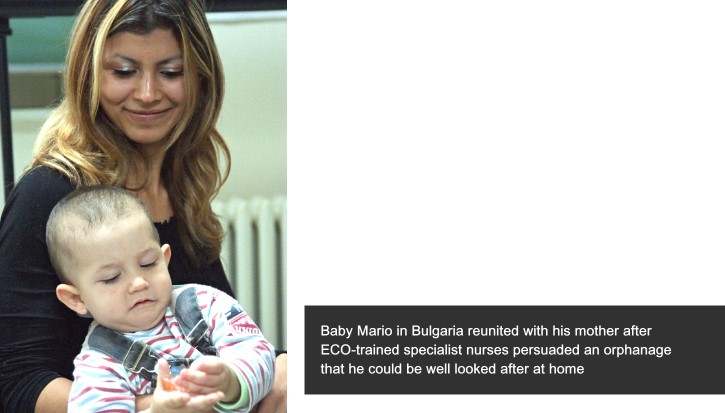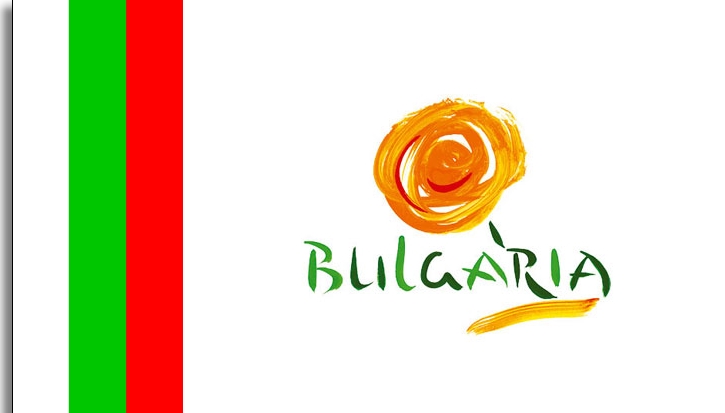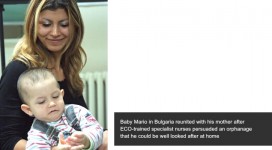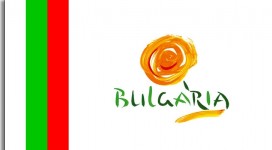ECO has been working with a partner, the Bulgarian Association of Children with Clefts and their Parents (ALA), in Plovdiv, Bulgaria, since 2009. ALA is a registered charity which supports the work of the cleft team at St George’s Hospital in Plovdiv, which now treats the majority of babies born with clefts in Bulgaria – about 120 per year. Only surgery is covered by state funding – all the other key aspects of multidisciplinary care have to be organised and financed through funding from charitable sources in Bulgaria and abroad. With an average monthly wage of around €500 and essential speech therapy treatment, for instance, costing €250, most families would not be able to afford it.
ECO’s priority in Bulgaria is focused on early care in an effort to try to reduce the number of babies being referred to orphanages and ensure families have the necessary support to enable their children to thrive in their growing years. To this end we have:
• Trained two Bulgarian nurses in the UK who have taken their knowledge and expertise back to Bulgaria
• Organised multiple training events for nurses and front-line health professionals (midwives, paediatricians, obstetricians, social workers). These have been coordinated by the nurses trained in the UK with support from ECO and a specialist cleft nurse from the UK. We wanted to ensure local ‘buy in’ and were able to get the courses endorsed by the Head of Nursing at Plovdiv Hospital and officially accredited with training qualification points.
From our survey results it is clear that these initiatives have made a difference. However, the fact that 27% of families with a baby born with a cleft are still advised to leave their newborn in an orphanage means more has to be done. We have concluded that it is not enough to provide training only. We need to set up systems that make a difference to daily clinical practice.
As a result ECO is currently trying to support a national pilot nurse network in Bulgaria. However, with limited funding, it is not possible to fully resource the network.
During a two-year period, this pilot network, comprising 15 nurses who had received training from ECO and the UK-trained Bulgarian nurses, has supported 147 families. Each child was referred in a timely manner to the specialist cleft team in Plovdiv. Successful bottle feeding was established, meaning there were no dangers of referral to orphanages. Seven families who had previously been told by health professionals to leave their babies in orphanages were able to keep their children at home. The families felt they were supported and not marginalised by society for having a child that was ‘different’.
Building on this success we want to implement a two-year project to fully resource the network, evaluate results and make recommendations, together with finding solutions for the project to become self-sustaining. We currently seeking urgent funds for this and if you want to help us please donate now!
For more information about Bulgaria, visit the patient group website, http://ala-bg.org/?lang=en




